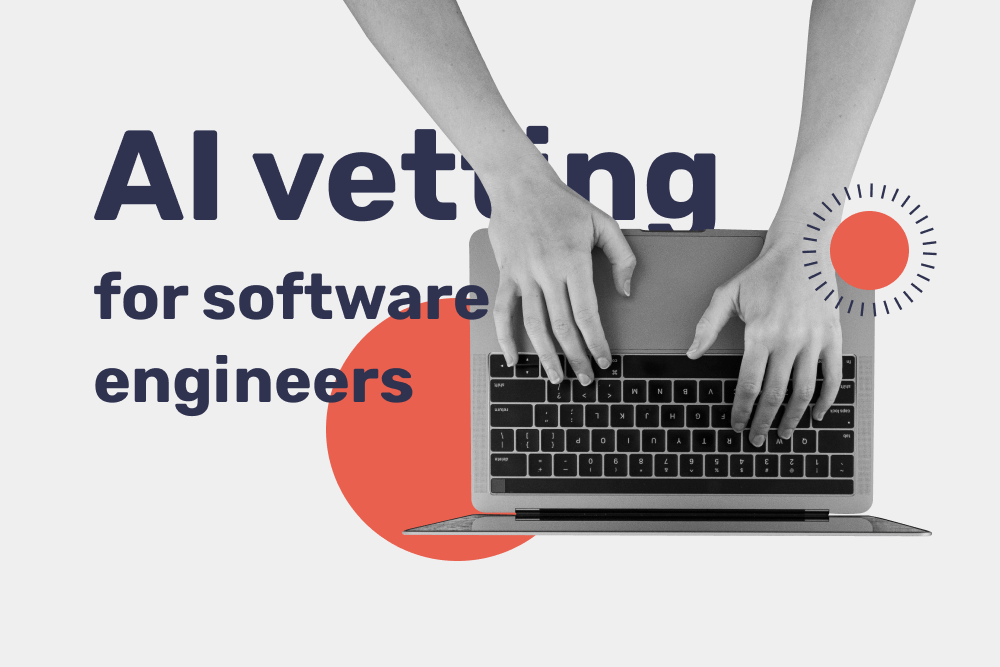Data-driven decisions, data-driven solutions, data-driven approaches… Sometimes, it seems that the whole tech business world revolves around data. Of course, it’s not totally true, but data is one of the most valuable assets for any organization and it would be unwise to underestimate its role in efficient decision-making. According to the research on big data trends and challenges, 81% of respondents believe that data should be at the heart of all decision-making.
Be it a tech giant like Amazon or a small e-commerce website, every company generates data and should adopt effective strategies to become data-driven, which means you don’t only collect raw data and make decisions based on it, but also analyze it and derive insights to deal with business issues, identify opportunities, and increase revenue.
If you are also among companies looking to become data-driven, you should start with finding the right experts, like a big data developer or data engineer. As these positions sound almost identical and both experts often use similar tools, it tends to cause a little bit of confusion for those searching for proper talent for their projects.
As a global recruitment company, Bridge can help you with hiring the required specialist since we’ve already done it for our clients. For instance, when partnering with Obvious.ly, we helped find data analysts and data scientists to improve their data platform.
To make your hiring campaign go seamlessly, it’s important to start by defining what experts you need. So for starters, let’s clarify the difference between big data developer and data engineer.
Big data developer vs. data engineer: responsibilities, skills, salary
In general, both roles complement each other in the data ecosystem, but they typically have different objectives. Overall, the ultimate goal of a big data developer (or they may be also called data scientists) is to extract valuable insights and knowledge from data to inform decision-making, solve complex problems, and drive positive outcomes. A data engineer, in turn, ensures that this data is accessible, namely that data infrastructure is reliable, scalable, secure, and efficient so that organizations can use it and improve their performance.
The explanation might seem a little bit confusing due to roles similarity, so let’s have a deeper look at what big data developers and data engineers do and what skills they possess.
Responsibilities
A big data developer should understand the business needs of the organization to then build a solution capable of addressing these needs with data. In other words, such experts create and maintain the infrastructure to handle big data.
On a daily basis, big data developers clean, message, and organize data. They can also perform analyses to develop insights and build predictive models for theorizing and forecasting. Such specialists also use machine learning techniques to improve the quality of data and deploy data tools, like Python or SQL. They create data visualization tools, dashboards, and reports, as well as build software to automate data collection and processing.
A data engineer is the one who designs, maintains, and optimizes data systems for collecting, storing, managing, and converting raw data into usable information which is later interpreted by data scientists and business analysts.
Their basic task is to ensure that the data is consistent, secure, and highly available. To achieve this, data engineers are responsible for choosing the right databases, storage systems, cloud platforms, and more. They build algorithms to convert raw data into actionable information, create and maintain database pipeline architectures, ensure compliance with security policies, and more.
How to Hire a Data Engineer on the Hot Job Market: Expert Hiring Workflow
Skills
It’s obvious that a data scientist should have a data science degree or a related bachelor’s degree, for instance in computer science or statistics. Besides, big data developer skills include proficiency in such programming languages as Python, R, SQL, and SAS as well as the ability to use tools like Tableau, PowerBI, and Excel. Familiarity with machine learning technology and software frameworks like Hadoop and Apache Spark would be also a plus for a good data scientist.
Talking of data engineer skills, they include knowledge of such programming languages as SQL, NoSQL, Python, Java, R, and Scala. Moreover, such professionals should be familiar with relational and non-relational databases since these are the most popular solutions for storing data. Data engineers should be able to work with ETL (extract, transform, and load) tools like Xplenty, Stitch, Alooma, and Talend, and understand cloud computing.
Salary
In comparison with other software engineering positions, data specialists make rather good money. For example, the top reported salary of a data scientist at Google was $438,950, while the median compensation for such a position was $267,000.
But let’s look at more down-to-earth figures. An average big data developer salary is around $144,000 a year in the USA. Yet, you can look for such specialists in countries with lower living costs, like Ukraine, Mexico, or the Czech Republic where the salaries are significantly lower.
When it comes to a data engineer salary, it is also rather high and is equal to nearly $118,000 a year in the United States. But you can cut costs by hiring experts from other countries. We at Bridge can help you find qualified engineers across 13 countries globally.
Despite numerous differences, the responsibilities of data scientists are closely intertwined with those of data engineers. Moreover, both roles are essential for a successful big data strategy in modern businesses and there are plenty of examples to prove that. Let’s look at some of them.
Real-world data science case studies
Here are success stories where collaboration with big data developers/data engineers led to needed business outcomes.
Netflix
Netflix is a world-known streaming service that offers a vast library of movies, TV shows, documentaries, and original content across various genres. One of its core tasks is to provide users with a flawless experience, which is also achieved with Netflix’s recommendation system. It anticipates customers’ requests and suggests various movies or shows.
Such data as previous product usage, ratings, and more become input for a recommendation system, which works based on data science techniques and algorithms. Therefore, data science is at the core of Netflix’s recommendation system, driving the creation of personalized and engaging content suggestions.
Obvious.ly
Obvious.ly is a leading influencer marketing company that creates marketing campaigns for famous brands. The company has a data-driven platform that helps its clients track the results of their campaigns.
With an aim to improve its platform, Obvious.ly had to add data scientists and data analysts to its team and reached out to Bridge for help. As a result, we managed to provide 5-10 viable candidates a week, even more than they initially required. For more details, you can read the full case study.
Amazon
Another example is Amazon ‒ a multinational technology and e-commerce company. As a global tech giant, Amazon generates a great amount of data, like browsing behavior, purchase history, and more that is further analyzed and used to ensure personalized product recommendations.
This way, users see relevant products that might persuade them to make additional purchases. Besides, Amazon also uses data science for demand forecasting, fraud detection, inventory management, pricing optimization, and more.
These examples prove once again that having skilled big data developers and data engineers on board can significantly enhance a company’s ability to use data as a strategic asset and stay competitive in today’s data-driven business landscape.
Hire professional data experts with Bridge
Whether you are looking for a data scientist or data engineer, or both, Bridge can help you find the right tech talent. We work on three continents so that our clients could find a suitable candidate with ease.
Based on your project requirements, we offer two types of services ‒ IT staffing and sourcing-as-a-service. In brief, IT staffing is a process of adding extra talent to your in-house team, while sourcing-as-a-service is when you get a list of qualified engineers and fly solo. Let’s dive into the details.
IT staffing
After we agreed that an optimal option in your case is IT staffing, you create a job requisition on our clients-only platform and we start looking for candidates. Next, our tech-savvy hiring specialists thoroughly screen candidates by assessing their skills and evaluating work experience, and provide you with a list of the most suitable ones. You remain the final decision-maker on who to interview and pick for your project. Finally, we hire approved candidates and help you onboard them, covering paperwork and payroll administration.
Sourcing-as-a-service
When you are not interested in hiring people right now, Bridge can help you find specialists for future hires. Or you can start the hiring process whenever you want since the list of skilled engineers is already on your desk. That’s actually what you get with sourcing-as-a-service ‒ a list of engineers for potential hires meticulously vetted by our sourcing managers. On average, we provide 15-30 candidates a month, while you start getting the first ones in 5 business days.
Contact our team and we will start looking for data specialists right now!





